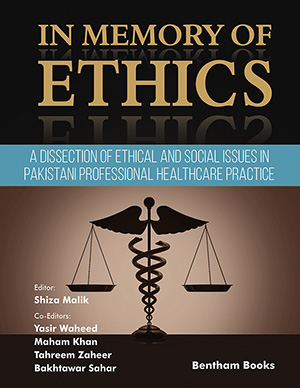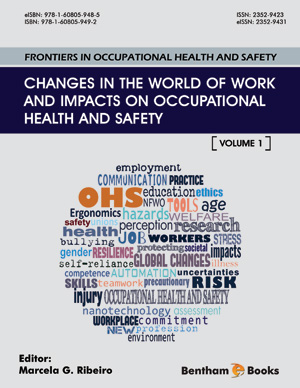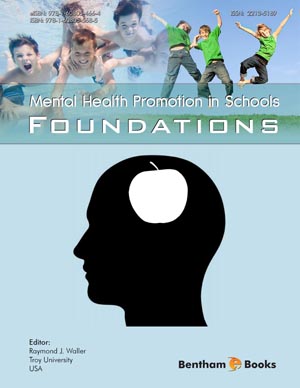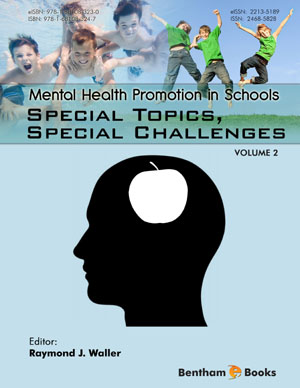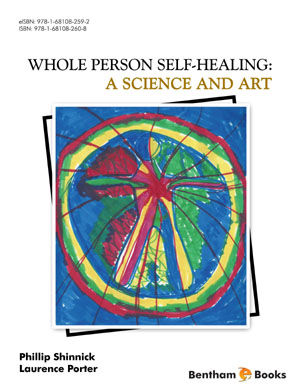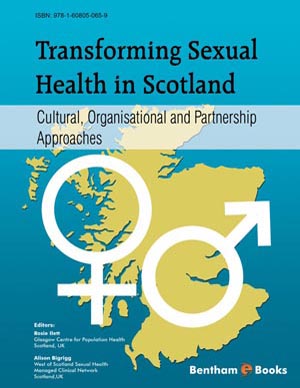Preface
Page: i-iii (3)
Author: Shiza Malik, Yasir Waheed, Maham Khan, Tahreem Zaheer and Bakhtawar Sahar
DOI: 10.2174/9789815223859124010001
About the Editors
Page: iv-v (2)
Author: Shiza Malik, Yasir Waheed, Maham Khan, Tahreem Zaheer and Bakhtawar Sahar
DOI: 10.2174/9789815223859124010002
Healthcare Sector Fraud and Corruption
Page: 1-9 (9)
Author: Amina Shahid, Mariam Fatima and Shiza Malik*
DOI: 10.2174/9789815223859124010005
PDF Price: $15
Abstract
Health sector corruption and fraud are rising not only in developing
countries but also in well-developed countries. Up-coding of bills, identity theft, and
quackery are some of the major kinds of fraud in this sector. In this chapter, major
causes and types of healthcare fraud have been discussed, and how they are affecting
the society, with special reference to Pakistan’s conditions. Moreover, a gist of
methods to reduce this issue has been proposed. The data suggests that the foremost
issue conducive to the poor impact of public investments in the healthcare sector seems
to be corruption and an observation system based on butcherly. The need is to
overcome the dilemma through diverse approaches that necessitate collaboration and
mutual work among politicians, citizens, policymakers, and every person within the
community. Only then the cults of health sector fraud and corruption could be
curtailed.
Misuse of Authority: Ethical Concerns
Page: 10-18 (9)
Author: Tahreem Zaheer*, Naila Nasir Mehmood and Syed Hashaam Ahmed
DOI: 10.2174/9789815223859124010006
PDF Price: $15
Abstract
Pakistan is confronted with one of the most common ethical concerns that is
prevalent worldwide - the common occurrence of abuse of authority. This chapter
primarily delves into a pervasive ethical issue in Pakistan, as well as globally – the
widespread abuse of authority. Through a comprehensive literature review and
qualitative survey methods, this chapter examines instances of authority abuse across
different sectors, with a primary focus on the police department, the political system,
and workplace misconduct. It seeks to shed light on the factors contributing to such
misuse, its consequences, and potential preventive measures. In recognizing the extent
of authority abuse, this chapter underscores the urgency for our society to devise
effective strategies to combat this unethical behavior, emphasizing the importance of
ethical conduct in positions of power.
Unethical Decision Making at Workplace: Psychological Issues and Ethics
Page: 19-29 (11)
Author: Anibah Khalid, Samra Babar and Shiza Malik*
DOI: 10.2174/9789815223859124010007
PDF Price: $15
Abstract
People find it hard to make ethical decisions in their lives. They often make
unethical decisions in certain situations due to several factors and end up with dire
consequences. In recent years, organizations have been applying different strategies to
create an ethical atmosphere in the workplace. In this chapter, we have discussed
unethical decision making at the workplace, its causes, consequences, and how this
dilemma can be dealt with. Special insights will be drawn upon the impact of unethical
decision making on the behavior of people. The purpose of this data is to elaborate on
the importance of ethical decision making in every profession to run the workplace
smoothly without causing psychological and behavioral stress among the task forces.
The Ethical Dilemma Behind Dishonesty in Medical Profession
Page: 30-36 (7)
Author: Javeria Mehboob, Maha Kaiser and Shiza Malik*
DOI: 10.2174/9789815223859124010008
PDF Price: $15
Abstract
It has been rightly said that greed is a curse. Medical professionals who are
either underqualified to treat their patients or are avaricious often prove to deal with the
profession with dishonesty. Such doctors or physicians are not only causing harm to the
patient’s life, but they are also proving to be havoc to society. Quackery is the term
used for such doctors who promote deceitful and oblivious medical practices. Such
practices are adopted by individuals who have a blinding ambition to excel, and in most
cases, it is the drive to amass as much wealth as possible in a short period until they are
caught or else for long. Such practices compel fake and uncompassionate doctors to
lose all compassion and empathy for fellow humans, both of which lie at the heart of
their sensitive profession. This chapter will evaluate the dishonest practices that are
adopted within the medical profession and the ethical issues that arise out of them. A
detailed insight will be put forth towards understanding the root causes of these
unethical practices and how to deal with them. The basic understanding will help the
readers acknowledge the importance of honesty, especially since the healthcare
profession is the most sensitive profession in society.
Unethical Behavior of Pharmaceutical Companies
Page: 37-43 (7)
Author: Syeda Faria Batool, Sara Qureshi and Shiza Malik*
DOI: 10.2174/9789815223859124010009
PDF Price: $15
Abstract
Malpractices of pharmaceutical companies in marketing their products are
widely becoming common. These practices not only involve the pharmaceutical
companies but are also associated with other professions. These may include nurses,
doctors, technicians, pharmacists, and cosmetic sellers, among others. Traders of
pharmaceutical companies give these professionals handsome incentives and subtly ask
them to market their products without letting them know about the actual performance
of the product whether it is a drug, cosmetic product, food, etc. Such products can have
many damaging side effects ranging from minor to major. They can even sell their
low-cost products by doubling the actual retail price just to have some extra money.
Such practices compromise the doctoral-patient relationship of trust and mutual
understanding and thus raise questions on the sanctity of the healthcare system. This
piece of literature has been created to discuss issues related to the unethical behavior of
pharmaceutical companies. The data shed light on the required steps for mainstreaming
ethical practices. It is required to implement proper ethical guidelines within each
sector of healthcare, primarily the pharmaceutical domain.
Workplace Harassment (Bullying) and its Health and Ethical Concerns
Page: 44-59 (16)
Author: Maleeha Arshad, Maryam Abbas and Shiza Malik*
DOI: 10.2174/9789815223859124010010
PDF Price: $15
Abstract
One of the pressing issues in any workplace environment is not only
optimizing working and maintaining a healthy environment of the workplace but also
keeping a check and balance of employee relationships and maintenance of peerless
interaction among the employee, head, and other staff members of the organization.
Workplace harassment is one of the imperative issues in the workplace throughout the
world, regardless of geographical discrimination. Obnoxious and biased conduct is
lawfully considered harassment when it is distressing enough to adversely affect a
workplace habitat. There is a general lack of awareness among the masses in a working
environment about workplace harassment; people often fail to recognize the
harassment until and unless they find themselves at the receiving end of extreme
delinquency and abuse. This chapter will elaborate upon the ethical concerns
underlying workplace attitude with special reference to bullying in the workplace and
its outcome. Some ways to tackle these abnormalities will also be made part of the
discussion to let the readers know the right way out, whether they are the boss, the
subordinate or a colleague suffering from bullying at a workplace.
Patient-Doctor Relationship and Ethical Concerns Regarding Non-Disclosure of Medical Information
Page: 60-67 (8)
Author: Aqsa Batool, Warda Batool and Shiza Malik*
DOI: 10.2174/9789815223859124010011
PDF Price: $15
Abstract
Patients have a fundamental right to be informed about their medical
treatments and the implications of anesthesia. Failing to disclose such crucial
information is ethically unacceptable. However, there are instances where physicians,
concerned about the psychological distress that comes with awareness of a severe
illness, opt to keep patients in the dark. In such cases, the responsibility of decisionmaking often falls upon the patient's family or the clinicians themselves. Additionally,
concerns about medical confidentiality and patient comprehension can lead to
incomplete disclosures regarding surgical procedures. This chapter delves into the
ethical dilemmas arising from the withholding of information by healthcare
professionals and its profound impact on patients, their families, and healthcare
workers. It also explores how these practices influence the public perception of
healthcare practitioners. The pressing need in this context is to establish comprehensive
regulations and standardized guidelines for information privacy and disclosure within
the healthcare sector, ensuring the long-term delivery of satisfactory healthcare
services.
Ethical Issues Related to Human Radiation Experiments
Page: 68-76 (9)
Author: Mehreen Tahir, Zehra Abbas and Shiza Malik*
DOI: 10.2174/9789815223859124010012
PDF Price: $15
Abstract
Human radiation experiments have been utilized for a long time for dealing
with healthcare complications. Their usage is undeniably acceptable for diagnosis,
treatment, and preventive and detection processes. However, the dilemma attached to
unethical practices in radiation experiments compromises its beneficiary accounts. The
health sector throughout the world is facing the dilemma attached to radiation
experiments. The problems associated with unwanted radiation exposure and excessive
and unnecessary application of radiation experiments are a major concern for scientific
and healthcare authorities to deal with. This chapter gathers data regarding ethical
issues that arise out of such human radiation experiments. It is required to learn lessons
from case studies and research and to devise better experiments for future radiation
experiments.
Euthanasia and Ethics: ‘The Good Death’ Debate
Page: 77-93 (17)
Author: Sabahat Munawer, Rizwana Fatima, Areej Sohail, Zunaira Qureshi and Shiza Malik*
DOI: 10.2174/9789815223859124010013
PDF Price: $15
Abstract
Euthanasia is a burning ethical issue as some people have an opinion that it
is better for a person to die than suffer from a painful and incurable disease. Murderers
hide behind euthanasia and cause the death of a human no matter what the reason is
against human dignity. This chapter revolves around the topic of critical ethical issues
pertaining to the ‘end of life’, which includes euthanasia and physician-assisted suicide
(PAS). Information that can help society cope with this ethical issue (Euthanasia) is
explained, as nowadays, people are more careless towards weak, old and ill people. The
concept of long-term care for terminally ill patients seems to have become very rare,
and people have started considering death better than life. This piece of information
will help create public understanding regarding euthanasia as a professional, ethical
issue, its prevalence across the world, causative factors, and some strategies to
overcome euthanasia.
Physician-Assisted Suicide - The Ethical Insights
Page: 94-102 (9)
Author: Aiman Farzeen, Areeba Mubashir and Shiza Malik*
DOI: 10.2174/9789815223859124010014
PDF Price: $15
Abstract
PAS is opted for when the patient is terminally ill and he/she no longer
wants to continue life-supporting treatments that are often excruciating, financially
unaffordable and offer no hope for survival to terminally ill patients. This chapter talks
about the ethical concern of physician-assisted suicide (PAS), which is one of the
perennial ethical problems of medicine, how it can be distinguished from euthanasia,
and what are the different types of practices that constitute end-of-life procedures. It
talks about the factors that make PAS a legal and ethical issue. Furthermore, PAS’s
prevalence across the world, especially in Pakistan, is discussed, and also the causative
factors leading to PAS have been shed light upon. Moreover, the influence it has on
individuals and society and the ways by which we can address issues encountered as a
result of physician-assisted suicide are made part of this discussion.
Assisted Reproductive Technology – Surrogacy: An Ethical Dilemma
Page: 103-116 (14)
Author: Maria Rashid, Shiza Navaid, Taskeen Aman, Zunaira Bano and Shiza Malik*
DOI: 10.2174/9789815223859124010015
PDF Price: $15
Abstract
It has long been assumed that a woman's most important right is to be a
mother, but today, it takes quite a bit of proof to be called the mother of a child. Who
came first, the parent who became a parent or the parent who gave birth? Or do both
need to be present in order for it to be referred to as one? Such repugnant arguments are
the outcome of internalized societal shifts. Regrettably, it has come time for authorities
and ethics committees to decide who the mother of the child is. Simply insert a needle
and perform a DNA or birth test. These tests are pointless. The transformations that
society is experiencing now have both benefits and drawbacks. Both positive and
negative developments are absorbed by society. To determine if something is excellent
or harmful, society even sets the scale. But, it seems somewhat terrible to go through
the anguish of bearing a child inside of oneself for nine months and then give the baby
away after delivery. Renting a mother's womb is not permissible under any
circumstances, regardless of the contracts that have been written, the amount of money
that has been spent, or the number of prior unsuccessful attempts. For the very cause,
surrogacy is creating an ethical dilemma, especially in Pakistan. Assisted Reproductive
Technology (ART) techniques being employed in surrogacy are increasingly common
infertility alternatives. The introduction, historical context, types, and popularity of
surrogacy, as well as several ethical concerns it raises and how it deviates from
bioethics, are all briefly covered in this chapter. The information will help in finding
answers to various surrogacy-related questions on dignity, exploitation, rights, and the
use of women's bodies as commodities.
In vitro Fertilization - An Insight into Ethical Issues
Page: 117-125 (9)
Author: Anushe Munir, Arooj Arshad and Shiza Malik*
DOI: 10.2174/9789815223859124010016
PDF Price: $15
Abstract
IVF (In vitro fertilization), by definition, is a complex series of procedures
used to treat fertility or genetic problems and assist with the conception of a child.
Reproduction is a basic human right and an inborn instinct, the existence of which no
one can deny; however, sometimes nature does not allow a man to fulfill this desire. In
this modern world, people no longer take ‘No’ for an answer to nature and fate
incidences, and for this reason, many who are unable to conceive naturally opt for
medical procedures like IVF to become parents artificially. The initial concept behind
IVF aimed to help married couples have children, but as times progressed, numerous
ethical issues have emerged. This chapter briefly explains some aspects of in vitro
fertilization, including its introduction, historical background, types, prevalence,
different ethical issues related to it and its deviation from the bioethics principles.
Unethical Clinical Trials and the Third-World Countries
Page: 126-141 (16)
Author: Fatima Tahir and Walifa Waqar*
DOI: 10.2174/9789815223859124010017
PDF Price: $15
Abstract
Although human experimentation has greatly increased our understanding of
the human body and diseases, there are still occasions when limits of morality are
crossed during clinical trials. Illiteracy, poverty, corrupt health practitioners, and lack
of law enforcement in developing countries have led to an increase in the exploitation
of people as guinea pigs for trial purposes. These unethical clinical trials in Third
World countries have caused an inferiority complex and a general mistrust in the
healthcare system. It is the duty of the physician and scientists involved in medical
research to protect the life, health, and integrity of research subjects, for which strict
regulations are a necessity.
Abortion–The Ethical Preview
Page: 142-154 (13)
Author: Ammara Arif, Bushra Ahmad, Hina Sharif and Shiza Malik*
DOI: 10.2174/9789815223859124010018
PDF Price: $15
Abstract
The deliberate termination of a pregnancy before a fetus can live
independently is called abortion. On the other hand, the natural ending of pregnancy is
called a miscarriage. This chapter describes abortion descriptively, along with its types,
causative factors, risks associated with it, and the potential consequences it can have on
the individual and society. It also discusses the different religious points of view on
abortion and the worldwide prevalence of abortion, with special reference to Pakistan.
Some organizations are also mentioned that are working to prevent it. An extensive
discussion has also been carried out regarding its ethical concerns. In the ending,
keeping in mind all the factors, a brief conclusion has been drawn.
Defining the Moral Status of an Embryo? Or Defying the Moral Status of a Woman?
Page: 155-165 (11)
Author: Bakhtawar Sehar* and Syeda Zahra Shahid
DOI: 10.2174/9789815223859124010019
PDF Price: $15
Abstract
Embryonic Stem Cells (ESC) are pluripotent cells that give rise to all cell
types and are used for cell replacement and regenerative therapies. However, ethical,
social, and legal controversies have questioned the morality of the procedures to obtain
ESC lines, and the moral status of an embryo is oscillating in the debate about the
origin of life, whether it originates at the totipotent stage or at the point of syngamy.
Ironically, the moral status of women is also being defied by inadequate informed
consent for medical procedures and their life-threatening consequences. In response to
the ESC controversy, an alternate approach of using low-grade embryos for obtaining
ESC lines has been proposed. This study aims to define the moral status of an embryo,
question the defined status of a woman, and find new ethical-based medical procedures
to obtain ESC lines.
Human Cloning- A Far-Fetched Idea or a Genetic Disaster?
Page: 166-172 (7)
Author: Fatima Khurazmi* and Shiza Malik*
DOI: 10.2174/9789815223859124010020
PDF Price: $15
Abstract
The world is a natural heritage where everything is revolving in a balanced
way. The whole universe is moving in a way that is not disturbing the flow of life, the
stars, the moon, the planets, seasons, and the process of life and death. But when
something disrupts the nature of this cycle, the outcome of that will be seen in the
world as a whole. With the evolution of science, man has made and produced things
that people were not aware of. However, with every advantage comes its drawbacks
and disadvantages. Similarly, the process of human cloning was once a farfetched idea
but now has become a genetic disaster for humans. But, many oppose this and talk in
favor of human cloning, mostly those who can afford it. However, if one looks at all
the aspects of human cloning, then it is a genetic disaster. To create or not to create is
the question. Do they serve the human race by human cloning? This chapter has been
devised to answer this question and to elaborate on the ethical concerns that arise out of
human cloning experiments. The purpose is to make the reader aware of the sensitivity
of this medical topic and to elaborate on what limitations could be there to deal with in
such medical procedures.
A Practical, Ethical, and Legal Guideline for Professional Therapists and Counselling Practices During the COVID-19 Outbreak
Page: 173-187 (15)
Author: Muhammad Aqeel*, Aqsa Chaman and Hina Shahid
DOI: 10.2174/9789815223859124010021
PDF Price: $15
Abstract
Professionals who consult online should understand the limitations of digital
consults and comprehend the numerous legal and ethical concerns that apply to this
task to maintain quality of service, prevent potential challenges, and support public
safely. This chapter discusses contemporary ethical guidelines in online mental health
care practice. The professional internet counselling ethical framework is explored in
this chapter. The different principles of ethical issues in counselling and psychotherapy
make it easy to understand the ethical responsibilities of online practice. It is important
for online professionals to keep in mind that not all clients and/or problems should or
can be resolved online. Some cases need in-office assessment or treatment. Online
communication and pseudonyms provide some level of privacy for receiving services;
therefore, it would be challenging for professionals to engage in therapeutic contact
with clients whose identities they do not know. A trained professional should insist on
knowing the identity of the online clients for two reasons. The client's safety is the
primary priority. It is important for the practitioner to be able to provide concrete
intervention if and when it is required. The main reason online professionals have to
verify their clients' identities is to prevent dual relationships. Professionals must follow
the limits of their professions and malpractice insurance policies when providing
professional services online. In simple words, online practitioners are only permitted to
provide professional care to customers who live in the state where the practitioner is
certified or licensed.
Covid-19 Pandemic and Ethics of Mandatory Vaccinations
Page: 188-209 (22)
Author: Sanaa Masood Aslam and Yasir Waheed*
DOI: 10.2174/9789815223859124010022
PDF Price: $15
Abstract
In recent years, vaccines have been found to be the most effective tool for
mass protection of people against infectious communicable diseases. Despite
technological advancements, the obligation of these essential preventive healthcare
treatments, to date, remains a subject of debate and, to an extent, opposition arising
from vaccine hesitancy and/or vaccine opposition. The COVID-19 pandemic
exacerbated shortages in resources and personnel owing to its rapid spread globally.
With little known about this uncommon disease, efforts for early development of
vaccines to achieve herd immunity, control disease transmission and reduce morbidity
and mortality were undertaken. The emergence and administration of vaccines raised
ethical concerns about loss of liberty and autonomy under mandatory provisions. This
chapter aims to highlight the processes through which an infectious disease such as
COVID-19 is politicized and securitized in the global policy arena, driving the
development and administration of vaccines as specific protection. It further discusses
the ways in which COVID-19 vaccine sufficed ethical standards for mandatory
vaccination programs.
The Ethical Problems Associated with the Impacts of Social Media on Healthcare
Page: 210-217 (8)
Author: Aleema Moin, Mahnoor Majid and Shiza Malik*
DOI: 10.2174/9789815223859124010023
PDF Price: $15
Abstract
Social media is a useful innovation of the 21st Century, which has provided
mankind with a wide range of facilities and comforts. It is a benchmark of
communication, technology, and business which comes with several risks. Different
countries and organizations have adopted various strategies such as the enactment of
bills to reduce the unethical acts being done on social websites such as Facebook,
Twitter, MySpace, etc. Through guidance and strict regulations, such online unethical
misconduct can be restricted ensuring a safe working environment for the users.
Ethical Dilemmas in Journalism and their Impacts on Mental Health of the Society
Page: 218-228 (11)
Author: Umme Swaiba, Zoya Siddique and Shiza Malik*
DOI: 10.2174/9789815223859124010024
PDF Price: $15
Abstract
Journalists all across the world regularly violate journalistic ethics, which
has a detrimental effect on societal peace and order. Due to unrestricted and
independent media, there is a serious problem with journalists misreporting, making up
news, inventing facts, and revealing improper material. The frequency, probable
causes, and effects of this situation are all covered in detail in this chapter, along with
international instances of poor journalism. There are also some recommendations in
this chapter for addressing this problem at the individual and organizational levels.
The Psychological and Ethical Default Lines Behind Gender Discrimination
Page: 229-235 (7)
Author: Mahnoor Ali* and Momina Hayat*
DOI: 10.2174/9789815223859124010025
PDF Price: $15
Abstract
Since the evolution of life on Earth, there has been a great expression of
gender discrimination. Women have always been its prime and more susceptible target.
Be it the absence of rights to property or the limited acceptance in the education field,
etc., women have always been the constant victims of this issue. This chapter explores
the ethical issue of gender discrimination against women in general, particularly in
workplaces. It sheds light on the prevalence of gender biases with special reference to
Pakistan. The basic causes of gender disparity and discrimination against women have
been stated in the light of various studies that were conducted. Some of the methods
and efforts that are being made to minimize this ethical issue are stated with examples
of some well-known organizations from all around the world. Moreover, the
consequences of gender discrimination against women in society and especially in
workplaces have been analyzed.
Insane Punishments or Humane Rehabilitation? Mental Health of Prisoners and Ethical Issues Associated with Lack of Rehabilitation
Page: 236-248 (13)
Author: Shiza Malik* and Maham Khan
DOI: 10.2174/9789815223859124010026
PDF Price: $15
Abstract
Ethical debates over rehabilitating prisoners have been in discussion since
imprisonment began. Rehabilitating rrisoners is meant to restore a person who is
incarcerated for some crime back to a beneficial life. The interpretation of
rehabilitation is that if anyone commits a crime, it does not necessarily prove him to be
a permanent criminal and there is always a possibility that they might quit those illegal
acts and get back to normal life and become a functional member of society.
Researchers have shown that these rehabilitation programs have proved to be
practically handy in bringing out something better for the prisoners themselves and
upright for society. Rehabilitation programs help to comprehend societal behavior and
psychological needs. This piece of literature has been adopted through a
comprehensive data analysis approach. Data regarding successful rehabilitation
services has been gathered, including the world's successful practices. The purpose is to
make the scientific, social, healthcare and justice-associated public aware of the
positives of rehabilitation on the behavior of people. The need is to ensure the
implementation of rehabilitation programs on a wider scale in countries where
punishment is preferred to control crimes.
Essay 1: Body Shaming
Page: 249-253 (5)
Author: Arooj Liaqat and Shiza Malik*
DOI: 10.2174/9789815223859124010027
PDF Price: $15
Essay 2: Ethical Issues in Small Businesses
Page: 254-258 (5)
Author: Asad Ullah and Shiza Malik*
DOI: 10.2174/9789815223859124010028
PDF Price: $15
Essay 3: Is Free Healthcare Good or Bad?
Page: 259-263 (5)
Author: Muhammad Bilal and Shiza Malik*
DOI: 10.2174/9789815223859124010029
PDF Price: $15
Essay 4: Human and Animal Cloning
Page: 264-269 (6)
Author: Ghulam Ahmed and Shiza Malik*
DOI: 10.2174/9789815223859124010030
PDF Price: $15
Essay 5: Cyberbullying Leads to Misdirected Frustration
Page: 270-274 (5)
Author: Hajra Shafqat and Shiza Malik*
DOI: 10.2174/9789815223859124010031
PDF Price: $15
Essay 6: Weight Loss Surgery
Page: 275-280 (6)
Author: Momina Ather and Shiza Malik*
DOI: 10.2174/9789815223859124010032
PDF Price: $15
Essay 7: Virtual Healthcare Reshapes Healthcare Delivery Worldwide
Page: 281-287 (7)
Author: Sophia Rahman and Shiza Malik*
DOI: 10.2174/9789815223859124010033
PDF Price: $15
Essay 8: Legalization of Abortion
Page: 288-292 (5)
Author: Hadia Arshad and Shiza Malik*
DOI: 10.2174/9789815223859124010034
PDF Price: $15
Essay 9: Euthanasia-Should it be Legal?
Page: 293-298 (6)
Author: Fatima Shafiq and Shiza Malik*
DOI: 10.2174/9789815223859124010035
PDF Price: $15
Essay 10: Respect for Gender and Gender Equality
Page: 299-305 (7)
Author: Zoha Saeed and Shiza Malik*
DOI: 10.2174/9789815223859124010036
PDF Price: $15
Essay 11: Education System Without Moral Education
Page: 306-310 (5)
Author: Zahra Fatima and Shiza Malik*
DOI: 10.2174/9789815223859124010037
PDF Price: $15
Essay 12: Patient Privacy and Confidentiality
Page: 311-316 (6)
Author: Aima Khalid and Shiza Malik*
DOI: 10.2174/9789815223859124010038
PDF Price: $15
Appendix A
Page: 317-343 (27)
Author: Shiza Malik, Yasir Waheed, Maham Khan, Tahreem Zaheer and Bakhtawar Sahar
DOI: 10.2174/9789815223859124010039
Appendix B
Page: 344-350 (7)
Author: Shiza Malik, Yasir Waheed, Maham Khan, Tahreem Zaheer and Bakhtawar Sahar
DOI: 10.2174/9789815223859124010040
Subject Index
Page: 351-356 (6)
Author: Shiza Malik, Yasir Waheed, Maham Khan, Tahreem Zaheer and Bakhtawar Sahar
DOI: 10.2174/9789815223859124010041
Introduction
In Memory of Ethics: A Dissection of Ethical and Social Issues in Pakistani Professional Healthcare Practice explores the ethical challenges faced within the healthcare sector with a focus on Pakistan. From workplace behaviors to medical procedures, COVID-19 era dilemmas, and broader social health concerns, the book explores the intricate intersection of ethics and healthcare in the region. The book is divided into five sections. Section I covers topics such as workplace behaviors and ethical conducts while section II covers medical procedures, and patient-doctor relationships. Section III addresses the unique ethical challenges brought forth by the COVID-19 pandemic, including guidelines for therapists and the ethics of mandatory vaccinations. Section IV examines the impact of social media on healthcare, gender discrimination, and the ethical considerations surrounding prisoner rehabilitation. The final section offers insightful essays on ethical and social Issues, covering topics like body shaming, free healthcare, and patient privacy. The editors also explore controversial topics, including euthanasia, abortion, and assisted reproductive technology. The key feature of this book is that it provides a comprehensive coverage of diverse ethical dilemmas in healthcare. Furthermore, it is an attempt to give a subjective understanding of healthcare ethics through thought-provoking essays shedding light on contemporary ethical issues in a Pakistani context. The contributors have incorporated real-world examples and case studies to illustrate ethical principles in action. In Memory of Ethics: A Dissection of Ethical and Social Issues in Pakistani Professional Healthcare Practice book is essential reading for anyone interested in understanding complex ethical and social issues and promoting integrity in healthcare practices.


